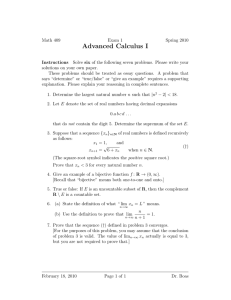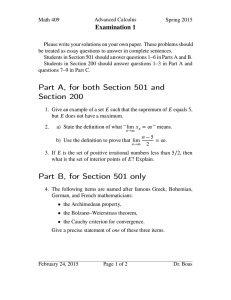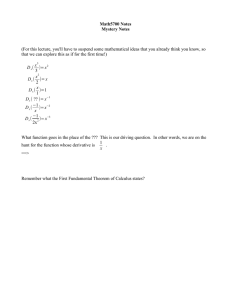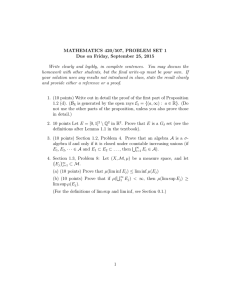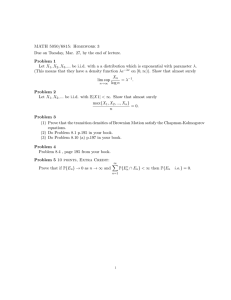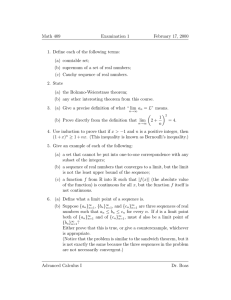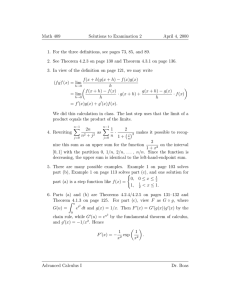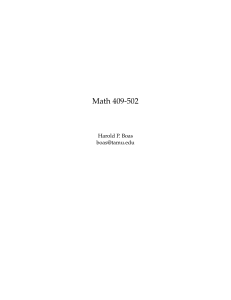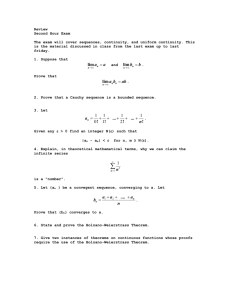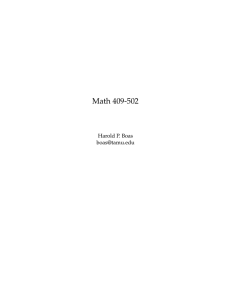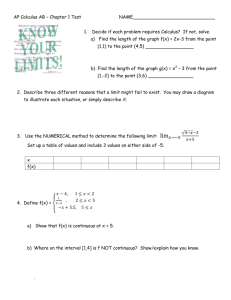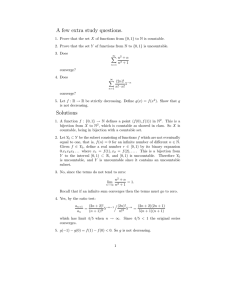Advanced Calculus I
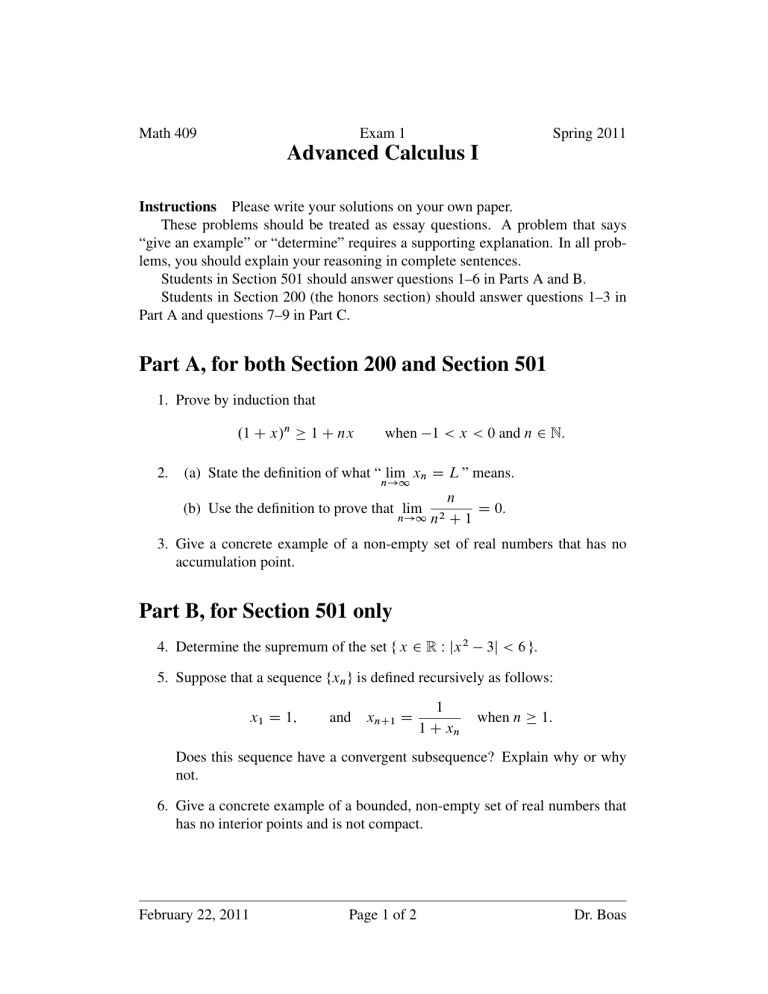
Math 409 Exam 1
Advanced Calculus I
Spring 2011
Instructions Please write your solutions on your own paper.
These problems should be treated as essay questions. A problem that says
“give an example” or “determine” requires a supporting explanation. In all problems, you should explain your reasoning in complete sentences.
Students in Section 501 should answer questions 1–6 in Parts A and B.
Students in Section 200 (the honors section) should answer questions 1–3 in
Part A and questions 7–9 in Part C.
Part A, for both Section 200 and Section 501
1. Prove by induction that
.1
C x/ n
1 C nx when 1 < x < 0 and n 2
N
.
2.
(a) State the definition of what “ lim n !1
x n
D L ” means.
n
(b) Use the definition to prove that lim n !1
n 2 C 1
D 0 .
3. Give a concrete example of a non-empty set of real numbers that has no accumulation point.
Part B, for Section 501 only
4. Determine the supremum of the set f x 2
R
W j x
2
3 j < 6 g .
5. Suppose that a sequence f x n g is defined recursively as follows: x
1
D 1;
1 and x n C 1
D
1 C x n when n 1 .
Does this sequence have a convergent subsequence? Explain why or why not.
6. Give a concrete example of a bounded, non-empty set of real numbers that has no interior points and is not compact.
February 22, 2011 Page 1 of 2 Dr. Boas
Math 409 Exam 1
Advanced Calculus I
Spring 2011
Part C, for Section 200 only
7.
(a) When E is a countable set of real numbers, is the complementary set
R n E always uncountable?
(b) When E is an uncountable set of real numbers, is the complementary set R n E always countable?
Explain why or why not.
8. Does the limit superior respect absolute value? In other words, is
ˇ
ˇ lim sup x n
ˇ
ˇ always equal to lim sup n !1
j x n j when f x n g is a sequence of real numbers? Prove n !1
or give a counterexample, whichever is appropriate.
9. Consider the following property that a set E of real numbers might or might not have:
Whenever a family of closed sets covers the set E , some finite subcollection of those closed sets covers E .
(The Heine–Borel property is the corresponding statement for coverings by open sets.) Is this new covering property equivalent to compactness?
Explain.
February 22, 2011 Page 2 of 2 Dr. Boas
